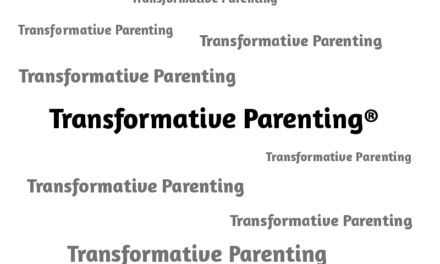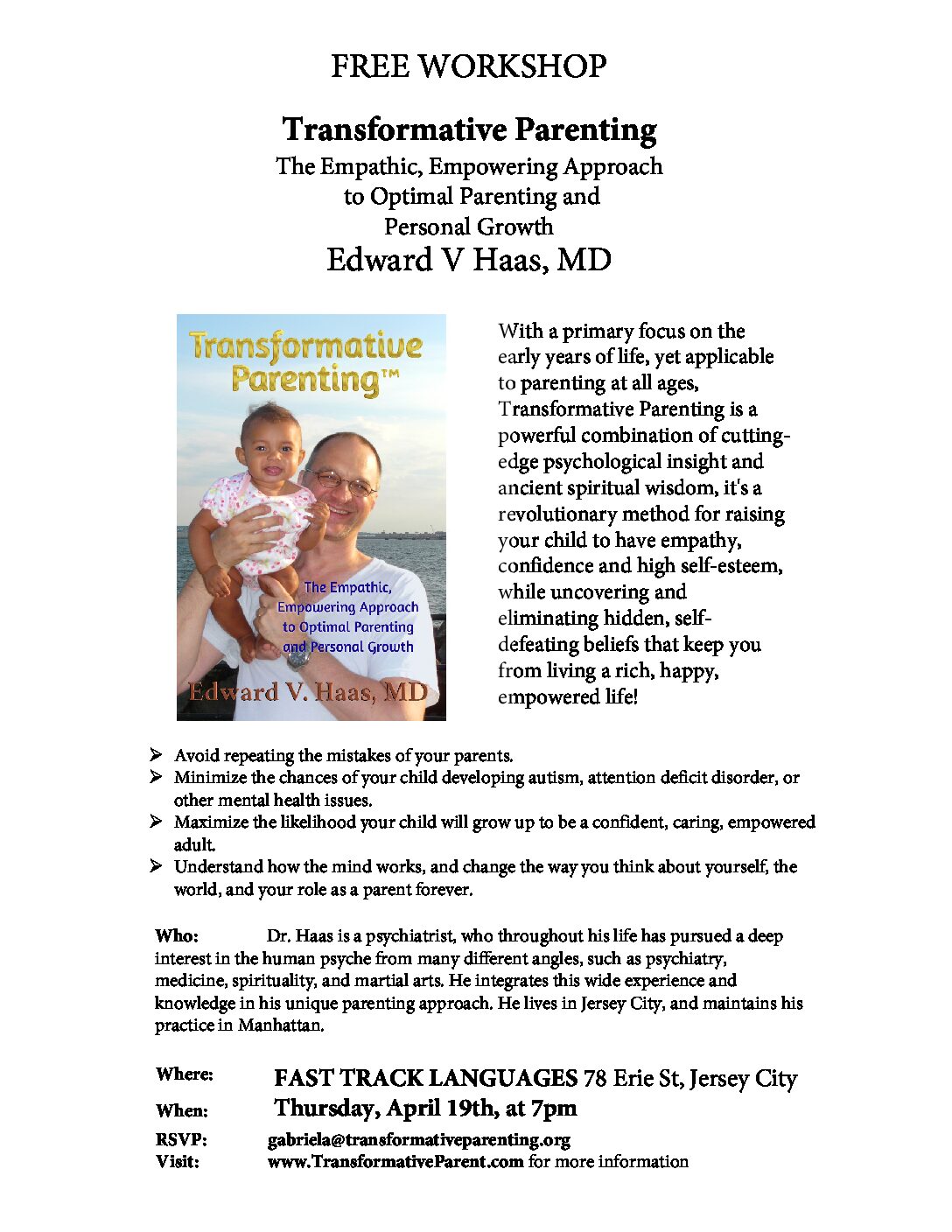It has always been difficult to be a parent, and even more to be a child. However, with the rise of materialism and technology, systemic forces grow ever stronger, which encourage the separation of parents and children, and the poisoning of their relationships.
Notice, first of all, that we live in a time where caring for a child is being continually devalued.
For men, this is nothing new. Traditionally, a man’s acceptable roles in the household were only protector, provider, and occasional disciplinarian. Any man with a desire to help with child care on a consistent basis, with the exception perhaps of teaching their son sports, was frowned upon.
It has historically been the role of women to stay home, keep the surroundings clean and safe, and nurture and supervise the children. While not optimal, at least this system had the potential to assure that one parent could be present to monitor and care for their child at all times.
In the current era, for better and for worse, this division of responsibilities is being discarded.
Women now have the freedom to pursue careers and acquire money independently of their husbands. Although this would be a wonderful development taken on its own, in our materially oriented society, with its ever-present pressure to buy more and more things, and indulge in more and more pleasures, even families who might otherwise be comfortable with the income from a single wage-earner feel compelled to make more and more money.
Combined with society’s lack of respect for housewives, when compared to mothers who earn money, and the pressure to minimize time spent caring for children, in order to make money, becomes overwhelming. Daycares, nannies, grandparents, friends, sometimes older siblings, and sometimes no one at all become the primary caregivers.
As a result, many infants and toddlers do not have the benefit of even one parent with them for most of their waking day. Their parents are unable to share their discoveries, alleviate their discomforts and fears, or develop the ability to communicate with and understand them on a deep level.
Time together is very important for both child and parent, but see how the pressures on women to have careers and earn money, as well as a structural shift away from marriage and the rise in single parent households (where the single parent works outside the home) has forced the separation of many parents from their children, even during daytime hours, and during their most vulnerable and impressionable years.
But raw time together is not the only thing that modern life has taken away from families, because even for those parents fortunate enough to have ample time with their child, that time is being poisoned.
Miracles of our modern world: Television, computers, the internet, and smartphones, have given us limitless potential for absorbing and sharing information.
Many of us spend a large proportion of our lives engaged with these devices, and find them immensely gratifying. Our natural curiosity and need for novelty is indulged with easy access to entertainment and information. Our natural needs for social appreciation and connection are gratified by phone, text, and email communication; and social media sites such as Facebook, Twitter, Instagram and many others.
However, these modern allures are like the Siren’s call in Homer’s Odyssey: overwhelmingly enticing, yet potentially deadly.
Like the story of the frog who is gradually warmed in a cooking pot until it is too late, the impact of technology on our lives has grown slowly over time. Recently however, awareness of damaging mental health issues created from over-indulgence in these outlets has begun to be recognized.
The invention of television: The “boob tube”, provided our first opportunity to spend vast amounts of time passively absorbing professionally crafted messaging designed to encourage us to purchase specific products, and to watch more television. As television quality has improved, so has the available programming, assuring us an always ample supply of enticing visual and auditory stimulus to suit our particular tastes.
With the onset of on-demand streaming through websites such as Youtube, we all have ready access to stimulating material almost uniquely tailored to our personal tastes, at very low cost, and in virtually unlimited supply. It is thus no surprise that most of us spend significant portions of our days watching television, on our cell phones, browsing the internet or all of the above.
Social media sites such as Facebook, Twitter, and Instagram have added further enticements to technology’s spell. Using the powerful psychological “hooks” of our need for praise, esteem, and belonging, we are encouraged to spend our social lives online, doing all we can to generate “friends”, “likes”, and “followers”.
These sites satisfy our natural social needs with much less effort than traditional methods such as developing useful skills, studying towards a career, or even just working and spending time together with other human beings. Why bother with delayed gratification when instant gratification is so readily available?
In these unforeseen ways, innovations in communication technology are actually making it harder and harder for human beings to interact with each other in an authentic, meaningful manner, not easier.
As an aside, we can predict the next, perhaps final progression in this process will be the coming of artificial intelligence (AI), which will bring machines designed to interact with and cater to us perfectly and at our whim. No longer will we have to appreciate or even tolerate points of view different from our own, since our synthetic assistants will be “happy” to “accept” us as we are. Why bother with the struggle of friendships with other human beings, when it will be so much easier to get along with our machine friends?
Nowhere are the damaging effects of technology more destructive however, than to children, through its impact on the parent-child relationship.
Parenting done well takes time and effort. Children require the nurturing attention of a loving caregiver to grow in a healthy way emotionally, intellectually, and physically.
Parents whose time and attention is absorbed in social media, talking with friends or associates on the phone, reading and replying to emails, or watching TV, by definition cannot be spending that time with their developing child. Even if the child is in the same room, parents are often not paying attention to them; and so the child (and the parent) are not getting the very real benefits of parent-child interaction on each other’s mental health.
The parent, drawn into a seductive, yet ultimately meaningless fantasy, is not being present and attentive to the real world, and their child must struggle to learn about the world on its own, while being taught through harsh experience that their parent does not prioritize or perhaps even care about them. While clearly impeding their learning, it is destructive to the formation of a healthy ego, the development of empathy, and their feelings of self-worth.
What is arising in more and more people, parents included, is the induction of a kind of narcissism. Lets call it a pseudo-narcissism. The hypnotic attraction of social media; craving likes, followers, and attention, and other forms of communication technology, leads to a self-absorption which mimics actual narcissism. Concurrently, our materially-oriented, capitalist society, pressures us to spend less and less time with our children.
Having a parent who is a narcissist is extremely damaging to a child’s psychological development. For a narcissist, everything is “me first”. Such a person has little time, patience or understanding for a child, who naturally, and developmentally appropriately, needs to feel that they are important to their parent and in the world around them.
While most parents do not believe “everything is about me”, notice how similar their behavior is to that of a true narcissist when they are absorbed in a phone call, a text message, a television program or the internet. When their child attempts to get them to play with them, or even get their attention, they become irritated, angry, or perhaps simply ignore them.
It is terribly wounding for a child to experience the negation or dismissal of their parent; whose attention, approval, and love are absolutely necessary to give them a feeling of self-worth, which later becomes self-esteem and self-confidence.
We don’t have to be true narcissists to act like one, and the damage done to our child is the same as if we were. It is not hard to hypothesize that autism spectrum disorder, and attention deficit disorder as well as many other emotional and intellectual issues may be impacted by parental negation and inattention at an early age.
What can be done to halt and reverse this insidious tide of child neglect which is sweeping through our culture? The first step to finding a solution is recognizing there is a problem. We must help others understand what is happening and the detrimental effects of our current path. Cultural shifts require many people coming to awareness and becoming motivated to change course. That awareness begins with you, and then extends to those around you as you spread that awareness.
The next step involves deciding on what changes need to take place. I offer these suggestions:
1) Accept that the responsibility of being a parent involves an obligation to put the well-being of your child above all other considerations. Your child did not ask to be born. He or she was born as a direct result of your actions. They are helpless, and their well-being is your responsibility.
An adult’s psychological well-being is based in large part on their childhood experience. Childhood happens only once. Since a child’s psychological well-being depends upon the continuous presence of an attentive, patient, nurturing caregiver in order for them to feel safe, secure, wanted, and empowered, it is the parent’s primary responsibility to provide that environment. In most cases, with proper instruction and support the best caregiver will be a biological parent, though sometimes it is not.
2) When in the presence of your child, as much as possible attend solely to them, their happiness and well-being. When you find yourself distracted, calmly redirect your attention back to your child.
This deceptively simple, yet powerful practice will ensure the healthy psychological and emotional development of your child; however, it also brings greater and greater awareness of the pervasive, and ever increasing, dehumanizing forces that surround us.
3) Visit www.TransformativeParent.com often, and sign up for our newsletter.
4) Read Transformative Parenting: The Empathic, Empowering Approach to Optimal Parenting and Personal Growth for its insights into child development, human psychology, and spiritual enlightenment through parenting.
5) Share your concerns. Talk about them with neighbors. Forward this message to your friends. Post it on your wall, like it, tweet about it. Help change how our society prioritizes children and parenting; before it is too late, and the damage caused by our modern pseudo-narcissism becomes insurmountable.
In informal discussions of this issue, people have shared some pretty disturbing experiences they have had relating to technology and distracted / disinterested parents. Please feel free to share your experiences in the comment (Leave a Reply) section below.








Recent Comments